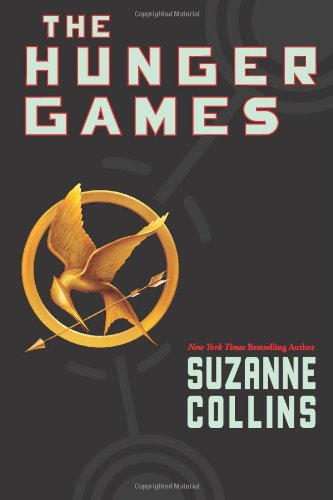All Nonfiction
- Bullying
- Books
- Academic
- Author Interviews
- Celebrity interviews
- College Articles
- College Essays
- Educator of the Year
- Heroes
- Interviews
- Memoir
- Personal Experience
- Sports
- Travel & Culture
All Opinions
- Bullying
- Current Events / Politics
- Discrimination
- Drugs / Alcohol / Smoking
- Entertainment / Celebrities
- Environment
- Love / Relationships
- Movies / Music / TV
- Pop Culture / Trends
- School / College
- Social Issues / Civics
- Spirituality / Religion
- Sports / Hobbies
All Hot Topics
- Bullying
- Community Service
- Environment
- Health
- Letters to the Editor
- Pride & Prejudice
- What Matters
- Back
Summer Guide
- Program Links
- Program Reviews
- Back
College Guide
- College Links
- College Reviews
- College Essays
- College Articles
- Back
The Hunger Games by Suzanne Collins
The Hunger Games is now the world's number one movie. The books are bestsellers. People everywhere rave about the story and its characters. On the surface, the story of The Hunger Games appears to be just another new teenage media sensation. Certainly The Hunger Games has taken over the media, but is that all the story is? An overly dramatic meaningless wish-wash like Twilight? Some people thinks so and avoid The Hunger Games like a plague, an abhorrence. Others run towards it, screaming in excitement at the latest fad. Whatever the public perceives it to be, however, The Hunger Games is neither poison nor candy. It is ultimately a story of human frailty and sin.
Fraught with bloodshed, violence, and all sorts of destitution, The Hunger Games is a portrayal of what humanity would be like without God. The evil and pleasure-seeking mindset of man is mirrored by the Capitol. The Capitol people, blissfully unconscious of the pain and evil they are causing, enjoy forcing and watching teenagers fight to the death. Also, man's natural digression to evil is shown in Katniss, the book's heroine. Despite her good intentions, morals, and love, Katniss is slowly destroyed by herself. Violence becomes her second nature, and her mental, spiritual, and physical health are destroyed by the decisions and actions she chooses. Finally at the end of the series, man's futility and hopelessness is revealed by the murder of Katniss's younger sister by the very leader Katniss was helping in order to destroy the Capitol. Katniss began fighting for her sister's life in the first place, and as she realizes that all the good things she has fought to uphold are contaminated, Katniss goes insane. All her effort is futile because without God, humanity is frail and evil.
Throughout the whole series, Suzanne Collins portrays humanity as sinful and frail. In this way, The Hunger Games is meant to both entertain and instruct readers. If people would stop reading The Hunger Games as a fad, and would listen to what the story is trying to say, this book could humble our culture because it reveals how weak and evil man is. Thus, The Hunger Games, as a story, ultimately points to Christ because it shows the futility of man and the need for a Savior. Whether or not Suzanne Collins intended her books to point to Christ, they ultimately do because Collins does not provide a true solution to the problems she creates. Sadly, this message has been mostly wasted on empty minds that care only about the drama. For those who can see, though, let The Hunger Games serve as a reminder of our own sin and as a warning against pride in our frail accomplishments.
Similar Articles
JOIN THE DISCUSSION
This article has 4 comments.
oh my gosh thank you so much. i didnt want to read the book or see the movie because the idea made me so sick and it was so disturbing i couldnt understand y in the world people became so obsessed over it. i looked at that book as pure evil and i ddnt think of it this way, so thank you. honestly i still wont read it but i cant say i hate it as much anymore. this review is extremely well written, great job

